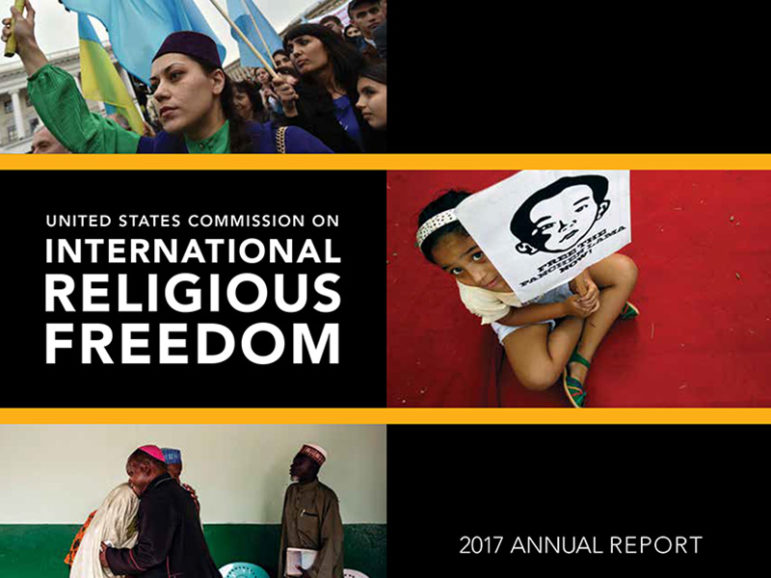Next year will mark the 20th anniversary of the International Religious Freedom Act (IRFA), which established the U.S. Commission on International Religious Freedom (USCIRF) to keep tabs on violations of religious freedom around the world and try to ameliorate them.
Whether USCIRF has done much good is open to debate — though not, by the numbers, very much. In its annual country-by-country report, released last week, the Commission allowed as how most of its “countries of concern” (CPCs) have been so designated for over a decade, with Burma, China, Iran, and Sudan making the list 17 years running.
Just one country (Vietnam), the report notes, has ever been delisted by the State Department as the result of the kind of diplomatic activity USCIRF was established to foster. That would seem to be an argument for shutting the thing down — as almost happened six years ago.
In a “dissenting statement” published as part of the report, outgoing Vice Chair James Zogby doesn’t go that far. What he recommends is a radical shift in approach.
USCIRF should, writes Zogby, cease its broad-brush “naming and shaming” of countries — including “acting as a ‘critic’ of the Executive Branch” — via press releases, op-eds, and a report that duplicates the State Department’s own state-of-religious-freedom report.
Instead, it ought to devote itself to in-depth studies of “a few targeted countries so that we might be in a position to provide the Administration and Congress with creative problem-solving ideas where improvements in religious freedom can be made.”
As it happens, the targeted country that Zogby has in mind is Israel. His statement (backed up by one from Commissioner John S. Ruskay) reports that the Commission last year received letters from two clergy groups asked it to look into issues of religious freedom in Israel and the occupied territories.
In Zogby’s words:
The level of vehemence that greeted the receipt of these letters was so great that some Commissioners expressed concern that if we were to adopt these requests to conduct a review of Israeli policy it would consume the Commission in endless rancorous debate, paralyzing us for the rest of the year.
I can well believe it.
In principle, Israel should be as eligible for USCIRF scrutiny as any other country. But coming from a longtime critic of Israel and supporter of the “Boycott, Divestment, and Sanctions”(BDS) movement, Zogby’s proposal for reforming the Commission raises a red flag, in the form of the phrase, “where improvements in religious freedom can be made.”
Behind that phrase is the idea that because of its special relationship with the United States, Israel is subject to U.S. pressure in a way that countries like Iran and China are not. Ergo, the Commission should focus its limited resources on Israel’s sins rather than wasting its breath on those of far more egregious offenders.
I don’t buy it.
The credibility of a watchdog agency like USCIRF depends on its rendering judgments based on the seriousness of the violation, not on the susceptibility of the violator to pressure — or any other consideration. During the Bush Administration, the Commission slipped into right-wing partisanship, but thankfully became far more even-handed in the the Obama years.
And that did not exclude acting as a critic of the Executive Branch.
Two months ago, in perhaps its finest moment, USCIRF issued a statement making clear its opposition to President Trump’s initial Executive Order suspending entry to the country from seven majority-Muslim countries.
“Refugees fleeing religious persecution and terror are not our enemies,” said Commission Chair Thomas J. Reese. “Resettlement is an essential way for the United States to aid and protect those fleeing persecution and terror.”
Even longtime critics of USCIRF could be heard cheering.






